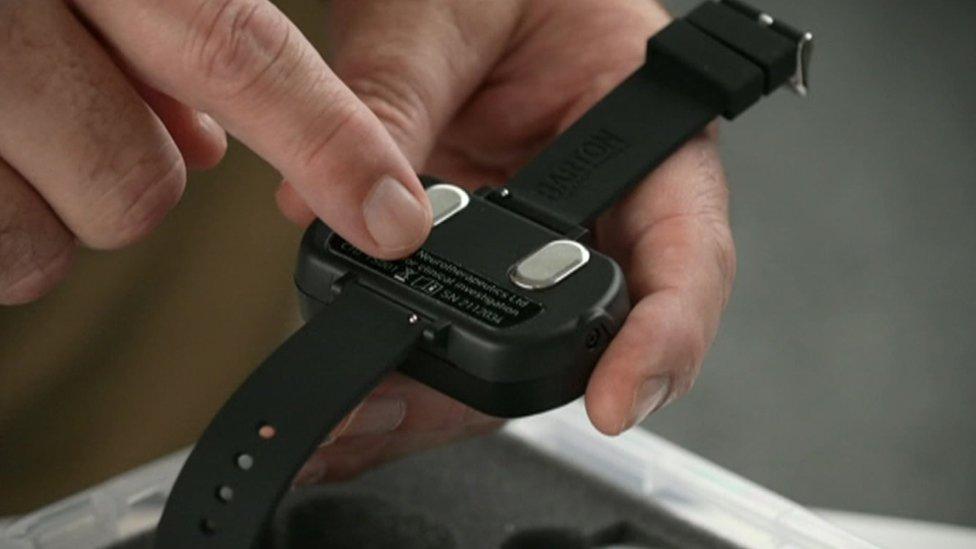Tourette's device tested by Lewis Capaldi reduces tics in trial
- Published
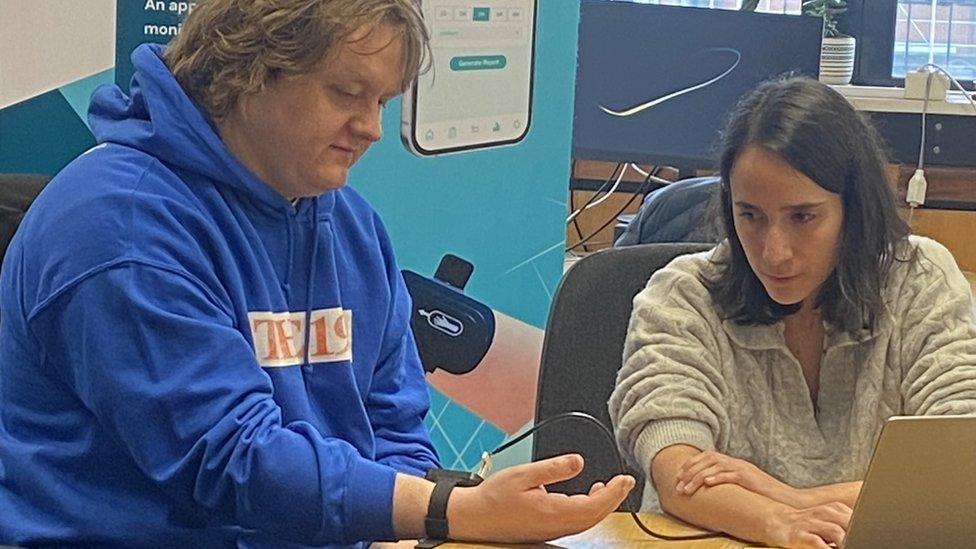
Lewis Capaldi visited the researchers to test the device in January
A wrist device tested by Scottish singer Lewis Capaldi has been shown to reduce tics in those with Tourette's syndrome.
The Neupulse device, developed by the University of Nottingham, delivers electrical pulses to reduce the amount and severity of tics.
A clinical trial of 121 people in the UK found they experienced, on average, a reduction in tic frequency of 25%.
The university said the results were encouraging.
The prototype wrist device was recently tried out by Capaldi, who told the university he had been impressed with the results.
Capaldi, famous for hits such as Forget Me and Someone You Loved, recently mentioned on stage that he had Tourette's.
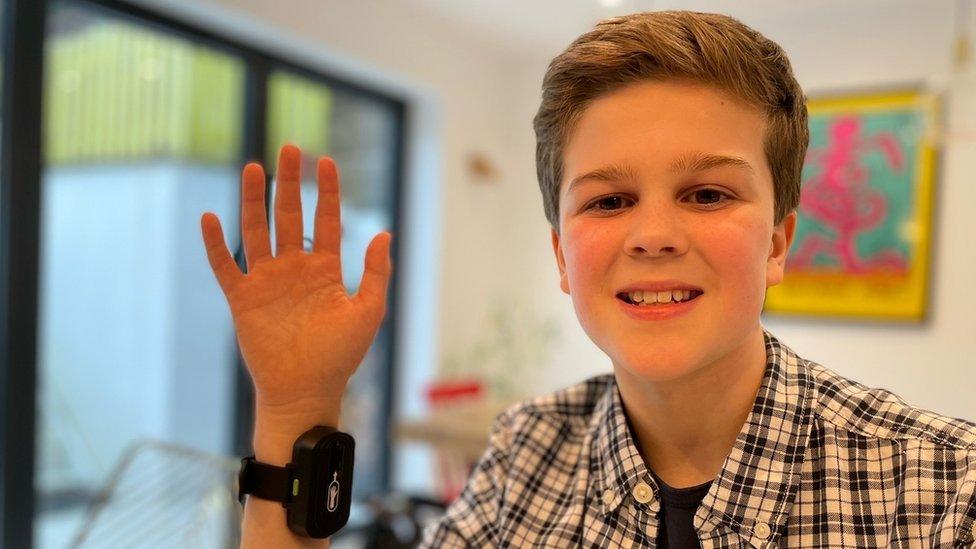
Mylo, 13, took part in the trial and said the device had helped him
The device was developed by the university and company Neurotherapuetics Ltd, who have recently secured £1m in additional funding to commercialise the device.
Tourette's syndrome is a neurodevelopmental condition that is usually diagnosed between the ages of eight and 12.
It causes involuntary sounds and movements called tics.
Trial participants used the device at home at a similar time each day for 15 minutes for a period of one month.
Each week participants gave feedback on their experience.
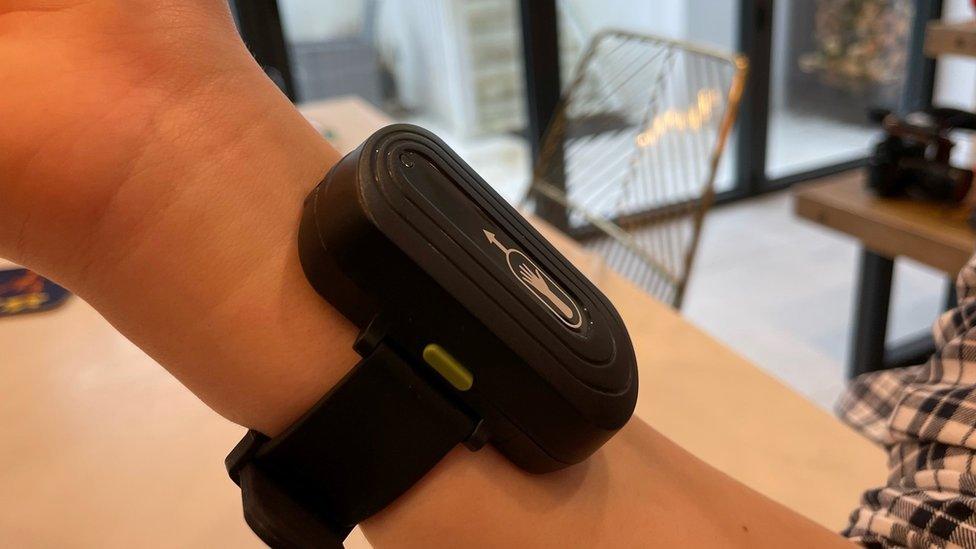
The device is worn on the wrist and delivers electrical pulses
The results of the trial revealed people who received active stimulation experienced a significant reduction in the severity and frequency of their tics.
After using the device for four weeks, people who received active stimulation experienced a reduction in their tic severity of more than 35%.
In total, 59% of the people who received active stimulation experienced a reduction in tic severity of at least 25%.
One of the participants Mylo, 13, said: "The device definitely helped my tics. I still did the occasional tic when it was on, but the need to do it was a lot less.
"Tourette's can be really exhausting sometimes, like when you have a tic attack and can't get a break from it - this device could really help with that.
"I don't think I would use it all day, just when I felt I especially needed it."
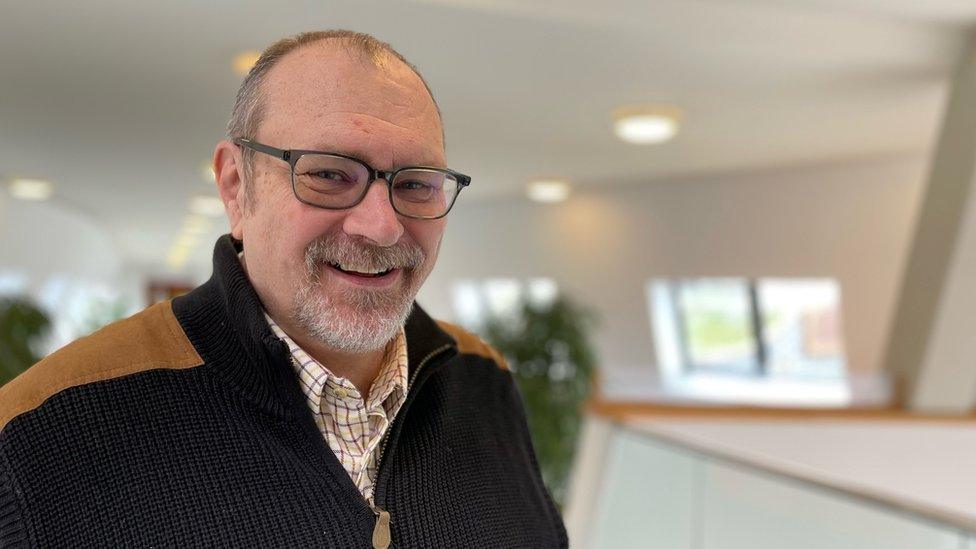
Prof Jackson said the device had the potential to dramatically improve lives
Mylo's mum Alex added: "I feel this device could be a great safety net for us.
"I don't know how Mylo's Tourette's will progress as he gets older, but knowing there is something out there that can help if he wants it makes me feel so much better."
Prof Stephen Jackson, from the university, said: "Though the Neupulse device is still early in development, the results of this UK-wide double-blind clinical trial have been extremely encouraging.
"This device has the potential to dramatically improve the lives of those with Tourette's syndrome, who often face challenges managing their tics, by providing increased control over their tics on demand."

Follow BBC East Midlands on Facebook, external, on Twitter, external, or on Instagram, external. Send your story ideas to eastmidsnews@bbc.co.uk, external.
- Published31 January 2023

- Published20 June 2022
